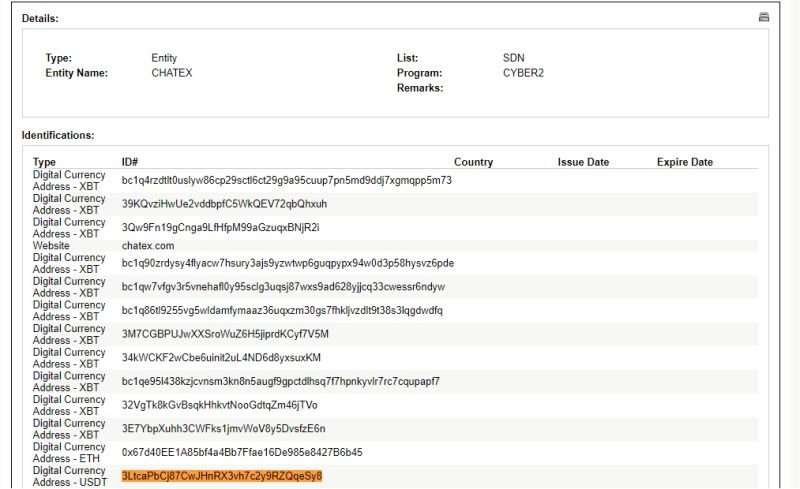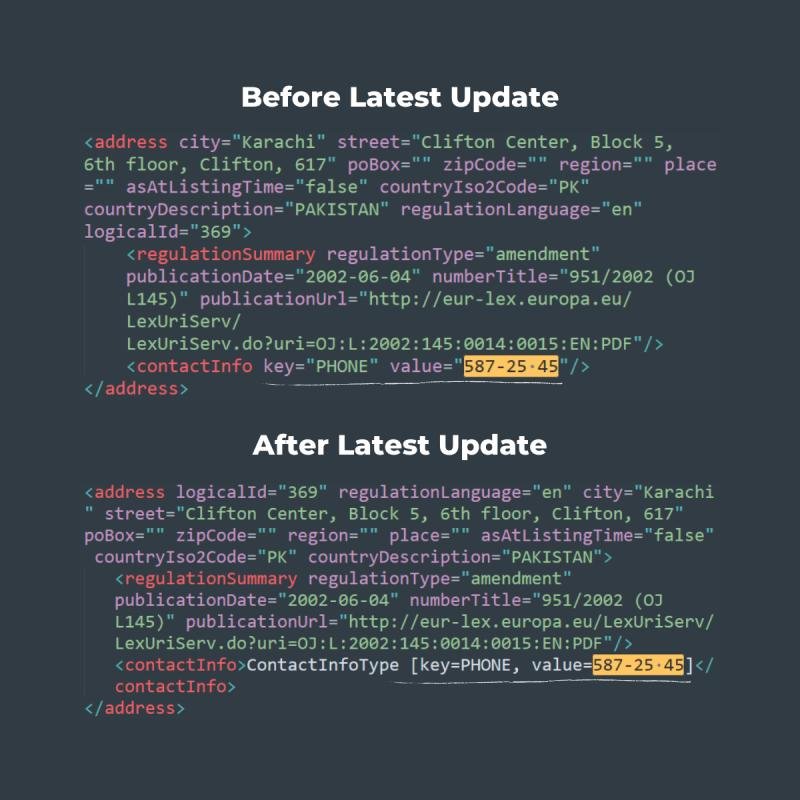Castellum.AI’s Department of Corrections
At Castellum.AI, we ensure the highest data accuracy and reliability for compliance and denied party screening, so much so that we even correct governments and help them improve their data. Government data, which is the source of many of our risk-based screening lists, often contains major errors that if left unfixed, would lead to sanctioned persons and money launderers evading screening systems. Companies buy screening services to obtain security and safety from illicit actors and government fines, so there is nothing more assuring to our customers than the fact that as part of our process, we correct the government’s own risk data.
Our Process
The challenge with risk data like sanctions, law enforcement most wanted lists and export controls is that it is publicly available but scattered across different sources, languages, and data architectures. Compliance teams often spend enormous amounts of time consolidating this data into a single file, and still end up with errors. At Castellum.AI, we've developed a solution that not only aggregates this data but ensures its accuracy and reliability, reducing false positives for compliance teams to sort through by up to 88% and freeing your valuable time and resources for more critical tasks. As Chapter 2 of our Screening System Buyer's Guide outlines, we provide real-time updates and comprehensive data coverage, which is crucial for maintaining compliance.
Our Impact
Our regular corrections to governmental data sources best demonstrate our effectiveness. Various government entities have acknowledged these corrections through numerous thank-yous. Here's a brief overview of our impact across different regions and a look at how we share these updates with our professional network to engage in meaningful discussions about compliance.
A Non-Exhaustive List of Our Corrections
United States - OFAC
We identified and corrected a mistake where OFAC gave a sanctioned Russian businessman a birthday that made him a two thousand year old vampire. For companies not using Castellum.AI - they would have missed an alert for this customer because the date of birth would have flagged this result as a false negative. Castellum.AI corrected this data internally and also reached out to OFAC, helping them correct this mistake quickly.
United States - OFAC
We identified and corrected a mislabeled cryptocurrency address in OFAC's records, preventing severe compliance breaches. This action is a prime example of our commitment to providing precise and actionable data, essential for effective compliance in the dynamic field of financial sanctions.
United States - Commerce BIS
We alerted the U.S. Department of Commerce BIS to the fact it deleted over 97% of the Entity List by accident. The BIS Entity List shrank from 2404 entries to 71 entries with no warning. This meant that for people using the official government site or vendors that do not have safeguards in place, users would now NOT get any alerts for companies including: Fadjr Marine Industries an Iranian Military company that produces fast attack craft or Tactical Missile Corporation, Smolensk Aviation Plant which produces, yes, missiles for Putin's war machine, and over 2,000 other high risk actors. We alerted BIS and they added the entries back.
Update on our correction on LinkedIn
United States - Commerce BIS
We identified and helped the Bureau of Industry and Security correct a mistake where it inadvertently watchlisted the Russian equivalent of "LLC" instead of the actual Russian company’s name, leading to widespread false positives for companies not using Castellum.AI. Our intervention facilitated a quick resolution and again demonstrated our commitment to ensuring data accuracy and reliability.
United States - Federal Reserve Consent Orders
We identified numerous mistakes in how the US Federal Reserve classified entities as individuals on their enforcement actions watchlist, including the Abu Dhabi Department of Finance. This correction is crucial for accurate legal and financial compliance.
United States - SAM Exclusion List
An update to the SAM Exclusion List was identified that omitted address information from the JSON API outputs. On Friday, September 13, 2024, the update retired older API versions but did not indicate any changes to v4 (the current version). A bug was introduced in this v4 update, causing address fields to be excluded from the v4 API outputs. The fields that are missing from v4 as of Monday, September 16, 2024, are highlighted below:
Canada - SEMA
We corrected an error concerning the date of birth of a sanctioned individual. The original entry listed "early 1970s" as the date of birth; however, we provided a more precise date, enhancing the accuracy of the sanctions list. This correction is crucial for maintaining stringent KYC and transaction screening processes that comply with international standards.
European Union Sanctions
Our platform identified incorrect XML formatting on the EU's consolidated list of sanctions. We reached out to the European External Action Service to inform them of the problem, which would have led those not using Castellum.AI to miss the phone number of a terrorist, mitigating any potential fallout from reliance on incorrect data. This proactive approach supports compliance with EU regulations and aids organizations in avoiding severe penalties for non-compliance.
Switzerland - SECO
A classification error in the Swiss State Secretariat for Economic Affairs (SECO) sanctions file was corrected, (a bank was classified as an individual by SECO), emphasizing the importance of accurate data categorization.
France - Tresor
We identified and reported a critical issue with the French Ministry for the Economy and Finance's SSL certificate chain, which prevented the public and vendors from access sanctions data. This was crucial for ensuring uninterrupted compliance checks.
Thailand
Our observations helped highlight the reduction in data quality in Thailand's sanctions lists where the Thai government accidentally dropped ID numbers and dates of birth for hundreds of terrorists. After we reached out to our contacts at the Thai government’s Anti-Money Laundering Office, this issue was fixed and the data was reuploaded. Castellum.AI clients, however, never lost access to these key identifiers.
United Kingdom - HMT OFSI
When the UK issued sanctions against 42 companies, individuals and vessels involved in supplying the Russian military-industrial complex or sanctions evasion we discovered this erroneous entry reversing key location data. Why does this matter? Regulators' lack of data quality control raises the risk that screening systems may generate a false negative.
In a separate intervention, we corrected several inaccuracies, ensuring the list's precision and reliability, which is vital for organizations conducting business under UK regulations.
Conclusion
Choosing Castellum.AI means more than just selecting a compliance data provider—it means partnering with a leader in compliance data accuracy. Our proactive approach not only correct errors but also enhances compliance data quality globally. As discussed throughout our Screening System Buyer's Guide, from understanding the stakes in Chapter 1 to finalizing your choice in Chapter 9, partnering with Castellum.AI ensures that your organization is equipped with the tools necessary for stringent, up-to-date compliance. For organizations that prioritize fast, accurate and reliable compliance risk data, fill out the form below to get in touch and schedule a demo.













